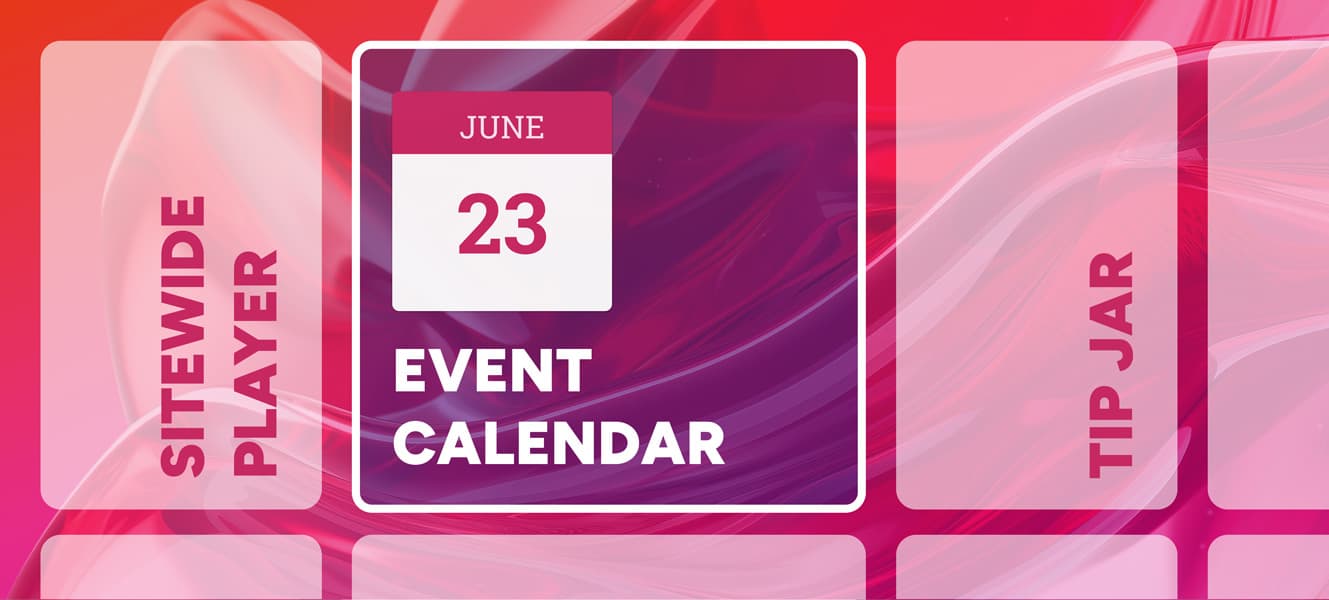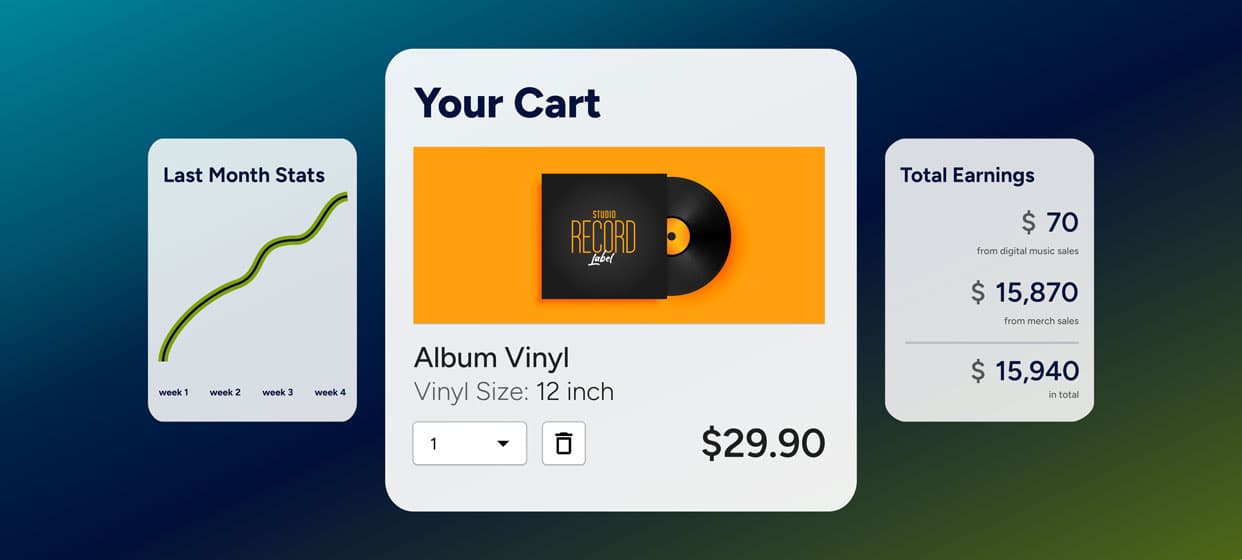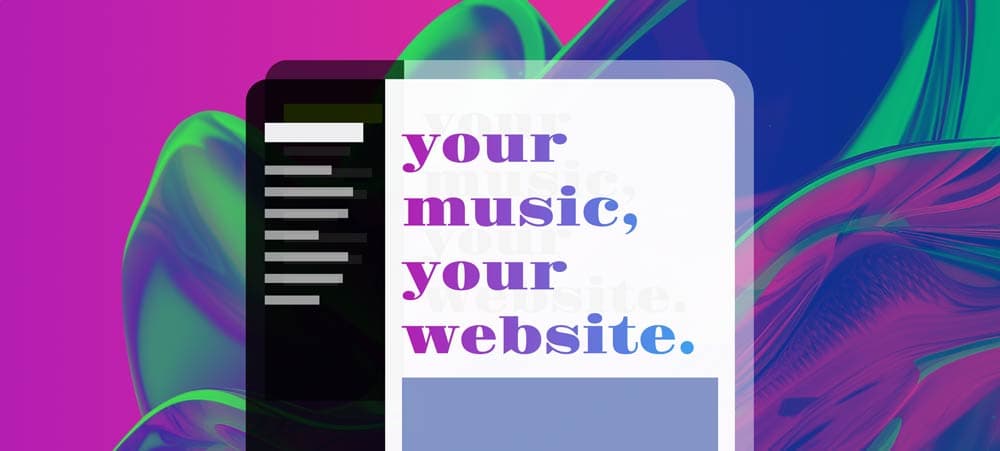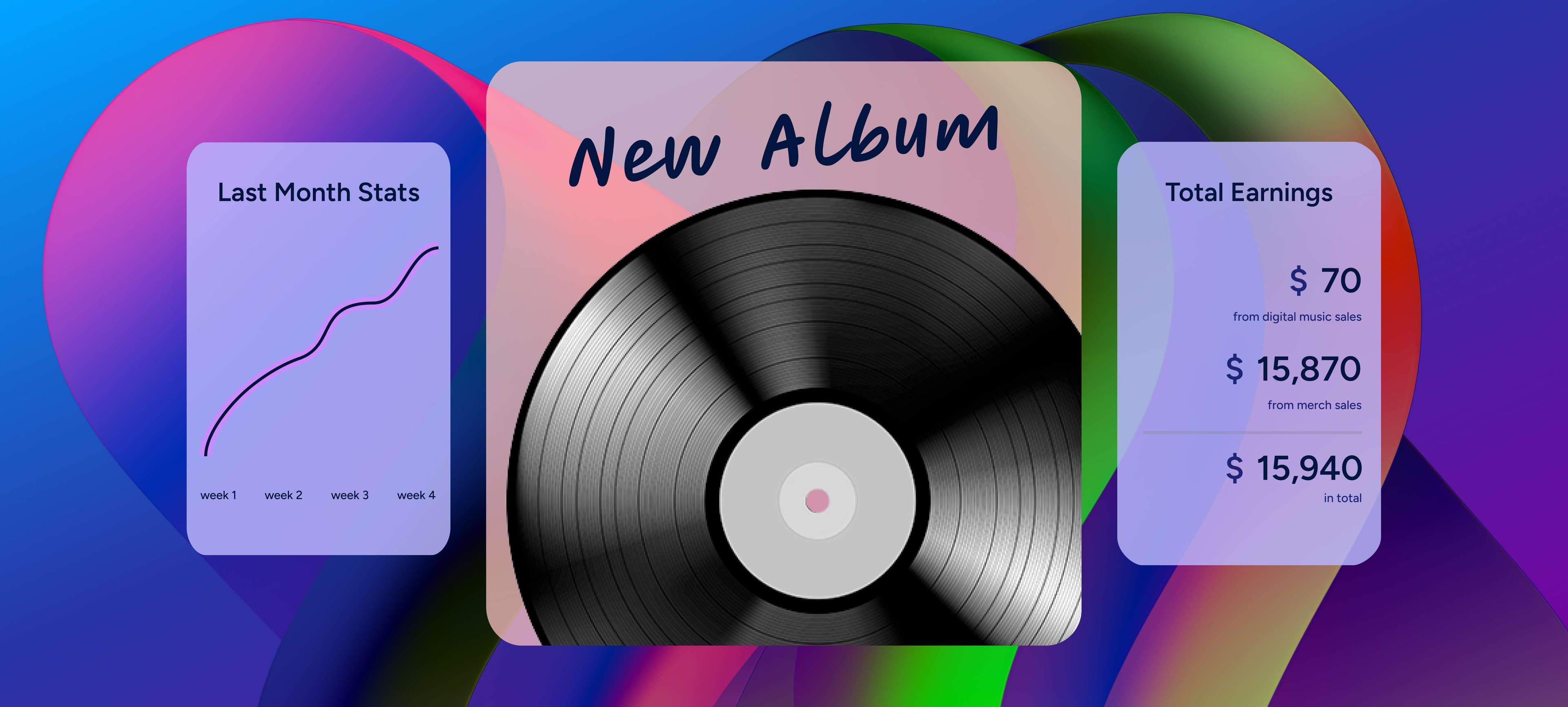BACK TO BLOG
The SEO Guide for Musicians: How to increase your music website’s visibility
![[object Object]: the word seo on a yellow background](/_next/image?url=https%3A%2F%2Fnoiseyard.nyc3.cdn.digitaloceanspaces.com%2Fnoiseyard%2Fuploaded-images%2Fuploadedimage1803251549728686.jpg&w=3840&q=100)
Having a music website is essential for any independent artist, but if no one can find it, it’s not doing much for your career. This is where SEO (Search Engine Optimization) comes in.
SEO helps your site rank higher in search results, bringing in more fans, industry professionals, and potential collaborators. It also strengthens your branding and ensures long-term discoverability, making it easier for new listeners to find you over time.
If you’re wondering how to make your website more visible, this guide will break it down in a simple, musician-friendly way.
What is SEO and Why Does It Matter for Musicians?
SEO (Search Engine Optimization) is the process of improving your website’s visibility on search engines like Google. When someone searches for your artist name, genre, or music-related keywords, SEO helps your site rank higher in the results, making it easier for new fans and industry professionals to find you.
Most people discover new music online, and a strong website will make you easier to find. If someone searches your artist name, genre, or keywords related to your music, you want to appear at the top of Google.

SEO makes sure that happens, helping you:
Rank higher in Google searches
Get more traffic to your website
Convert visitors into fans, mailing list subscribers, and paying customers
Improve brand recognition and establish credibility
Unlike social media, where algorithms change constantly, a well-optimized website gives you long-term visibility and a professional presence that you fully control.
How Musicians Can Improve SEO and Get More Website Traffic?
1. Use a Custom Domain Name for You Music Website
A custom domain (like yourbandname.com) looks professional and improves search rankings. If you’re still using a generic domain like yourbandname.noiseyard.com, consider upgrading to a custom one.
Google favors websites with unique domains, and fans will trust your site more.

2. Fill Your Website with Quality Content
If you want Google (and your fans) to pay attention to your website, you need quality content.
A site that’s regularly updated with valuable content will always rank higher than one that just sits there untouched.
What kind of content should you focus on?
Start a blog – Think of it as your personal space to share your journey, new releases, thoughts on the industry, or even tips for other musicians. Blogs give search engines fresh content to index and keep visitors coming back.
Post new music and videos – Every time you release a new track or music video, add it to your website first. This keeps your fans engaged and helps search engines recognize your site as an active music source.
Update your bio and press page – Your bio is prime SEO real estate. Make sure it’s current and includes your genre, artist name, and key terms that describe your music.
Add fan engagement content – Interactive elements like Q&A sections, lyric breakdowns, and behind-the-scenes stories help keep people on your site longer, which boosts SEO.
Bonus SEO Tip: Content isn’t just about writing!
Make your website visually appealing with high-quality images and videos, and Noiseyard automatically generates alt text for your images, ensuring search engines can understand and rank them properly. This helps search engines understand what they’re about and improves accessibility.

3. Optimize Your Bio and About Page
Your About page is the most important piece of metadata on your website for SEO.
Google scans this page to determine what your site is about, so optimizing it properly can significantly impact your rankings.
How to Optimize Your About Page for SEO?
Use your artist name and genre in the first 150 characters – This is the most critical part of your bio because search engines prioritize the beginning of your content.
Include relevant keywords naturally – If you want to rank for terms like "indie rock artist in Los Angeles" or "electronic music producer and DJ," place these early in your text.
Describe your music style, influences, and locations where you perform – This helps Google understand how to categorize your website.
Keep it clear and easy to read – Avoid stuffing too many keywords; natural language works best.
By following these steps, you increase your chances of ranking higher in search results when fans or industry professionals search for your music.
For more on crafting a strong bio, check out our guide on crafting the PERFECT artist bio.

4. Share and Link Your Website as Much as Possible
The best way to improve your SEO and drive traffic to your music website is to share it everywhere.
The more places your site appears, the more visitors and engagement you’ll get. Search engines also see this as a signal that your website is relevant and valuable, helping it rank higher.
Share Your Website Across Social Media Platforms
Include your site link in your Instagram bio, Twitter/X profile, YouTube channel, and TikTok description.
Regularly post about your website in stories, posts, and reels, directing fans to check out your music, merch, or upcoming events.
If you are using Linktree or similar tools to display multiple links in your bio, prioritize your official website.
Add your website link to your email signature so it appears in every message you send.

Post Your Site in Relevant Online Communities
Music-related Facebook groups, Reddit threads, and forums can drive traffic and create backlink opportunities.
Engage naturally - join discussions and offer value before dropping your link to avoid being flagged as spam.
Find music networking sites where you can create an artist profile and include your website link.
Use Discord servers dedicated to independent artists to connect with other musicians and share your site.
Cross-Promote with Other Musicians and Blogs
If you collaborate with other musicians, ask them to link to your site when promoting your work.
Reach out to music bloggers and influencers who might be interested in featuring your music and linking to your website.
If you release music on Bandcamp or SoundCloud, make sure to link back to your website in your bio and descriptions.
By actively sharing your website, you’re not only increasing traffic but also strengthening your SEO by building connections across multiple platforms.

5. Get MORE Backlinks from Other Websites
- What's a "Backlink"?
A backlink is a link from another website that directs users to your site. Search engines see backlinks as a signal that your content is valuable, helping to improve your rankings.
The more high-quality backlinks you have, the better your chances of appearing in search results.
Here are some ways to get backlinks:
- Submit your music to blogs and magazines
Getting featured in a well-known music publication or playlist roundup can significantly boost your credibility and ranking. Reach out to blogs that cover your genre, send a well-crafted pitch, and offer exclusive content or interviews in exchange for a feature. The more reputable the blog, the more valuable the backlink.
- Collaborate with Other Musicians
Cross-promotion is a great way to earn backlinks. When you collaborate with other artists, ask them to include a link to your website in their interview features, blog posts, or album release announcements. You can also write guest blog posts on their site or offer to promote each other's content.

- Get Listed in Online Directories
Many music festivals, indie artist lists, and local event sites allow artists to create profiles with links to their websites. Getting listed in directories specific to your genre or region helps with both SEO and exposure. Additionally, a listing on a popular streaming service's artist directory can serve as a strong backlink, increasing your site's credibility.
Remember: Quality matters more than quantity for SEO. Getting links from reputable websites related to music will have a greater impact on your SEO.
6. Create Blog Posts, Update Content, and Keep Your Website Fresh
Google loves fresh content. One of the easiest ways to increase your website’s visibility is by blogging and regularly updating your site.
A website that’s frequently updated signals to Google that it’s active and relevant.
Keep Your Website Updated:
An outdated site can hurt your rankings. Keep your site fresh by:
Updating your tour dates
Posting new blog content
Adding recent press mentions
A site that’s frequently updated looks more credible to both fans and Google.

What to Blog About:
Behind-the-scenes stories about your music
Tour updates and concert recaps
Music production tips (great if you want to reach fellow musicians)
Lyrics breakdowns and songwriting insights
Each blog post is a chance to rank for new keywords, so post consistently. Even one new post a month can improve your SEO.
7. Use Internal Links
Linking between pages on your site helps Google understand how your content is connected.
For example:
Link from your About page to your Discography page
Include links in your blog posts to other pages on your site
Direct fans from your homepage to your store or tour dates
This keeps visitors engaged and improves your ranking.
Curious about the must-have website pages & features in your website? Read our article to learn more about it.

Noiseyard’s Built-in SEO Features for Musicians
While Noiseyard automates many important SEO steps, there are still things you should do to further improve your rankings. However, Noiseyard already provides several built-in features that help boost your search visibility without extra effort:
Automated Title Tags and Meta Descriptions – Ensures your pages have SEO-friendly metadata.
Automated Sitemap Generation – Helps search engines index your site properly.
Automated HTTPS (SSL) Encryption – Secures your site and improves search rankings.
Fast Page Loading – Optimized speed for better SEO and user experience.
Mobile-Optimized Designs – Your site looks great on all devices.
Custom Domain Name Option – Strengthens branding and helps search rankings.
Automatic Schema.org Markup – Enhances your Google Knowledge Panel for better visibility.
To learn more about the features Noiseyard offers, visit our Features page.
Long-Term SEO Strategy for Musicians
Keep in mind that SEO is an ongoing process, and results take time.
Staying consistent with content updates, engagement, and optimization will help improve your rankings over time. Patience and persistence are key to building long-term visibility for your music.
Not sure if you need a website? Check out our article about why every musician needs a website and get started with your first free month of Noiseyard!
Other Blog Posts

Website Tips
10 website features every musician needs to grow in 2025

Marketing & Promotion
What to sell as a musician online (From essentials to creative extras)

Music Career Advice
Why Every Musician, Band, or DJ Needs a Website: A Comprehensive Guide

Marketing & Promotion
10 ways to promote your music without a label
Useful tips and tricks, delivered right to your inbox.
Join our newsletter to keep informed about Noiseyard updates and new blog articles. You can unsubscribe any time.